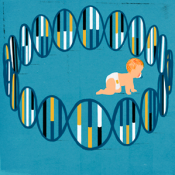Aggregated News

Three years after the ‘CRISPR babies’ burst into the public eye and caused outrage, their fate remains shrouded in secrecy amid swirls of rumors. Many people contacted for this story refused to speak about the babies, who are now purportedly healthy toddlers. Some would speak to Nature Biotechnology only on condition of anonymity. Others believe that the unethical work conducted in He Jiankui’s lab at Southern University of Science and Technology in Shenzen can be openly discussed without infringing on the children’s privacy and dignity. This could help the children and their parents plan for the future.
A full understanding of the health risks faced by the children due to their edited genomes may lie beyond the reach of current technology. But emerging knowledge on the potentially genotoxic effects of gene editing may help guide the children’s physicians about what to look for.
Born to an uproar
Three years ago, the world was in uproar after a journalist broke the news about two babies born with genomes edited with CRISPR-Cas9. He Jiankui had been invited to speak in the...



